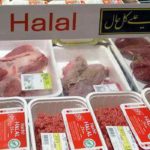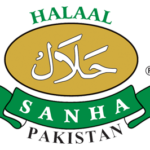
Cii News | 01 Jumadal Ukhra 1437/11 March 2016
“We cannot generalise”.
This is the purport of the verdict of the South African National Halaal Authority(SANHA) on questions of the Halaal status of consumer meat available in Saudi Arabia.Over successive years, messages have gone viral that allege that much of the meat available through popular restaurants in Islam’s Holy Cities is unsuitable for Muslim consumption due to doubts arising from their points of origin.“The senior body of scholars in Saudi Arabia (the Hay’ah Kibaril Ulama) has formally issued a 50 page fatwa that all imported meat is haram,” reads one such message attributed to Mufti Abdullah Nana, founder of halaal Advocates, an organization that provides halaal certification for American food companies, restaurants, and animal processing facilities, and is the author of Legal Rulings on Slaughtered Animals.
A warning to those Intending to perform Umrah or Hajj: Mufti Abdullah Nana, the founding member of the halaal Advocates of America, says: “I can personally verify that machine slaughtered chicken, meat not slaughtered by a Muslim, & doubtful meat is imported into Saudi Arabia.The senior body of scholars in Saudi Arabia (the Hay’ah Kibaril Ulama) has formally issued a 50 page fatwa that all imported meat is haram.It is a major travesty and perhaps a conspiracy that millions of Muslims that visit Makkah/Madinah every year are eating haram/doubtful food”There are local hand slaughter suppliers, but only a small percentage. 90% of fast food chains (McDondalds, KFC etc) including Al-Baik use imported meat.For reference, I have translated the detailed fatwa of the Hay’ah Kibaril Ulama (Body of Senior Scholars) as part of the following book:”Mufti Taqi Uthmanis DBs Research… – EXCERPT FROM VIRAL MESSAGE
Clarifying its stance for the benefit of the South African public, SANHA’s Moulana Mohammed Saeed Navlakhi told Cii Radio the status of Saudi meat was a delicate affair, and as such, the certifying body generally steered clear of any public pronouncements that could “put the community into a huge amount of doubt, confusion and great difficulty”.
“In general, countries in the Middle East are net importers of meat whether it be red meat or poultry,” he explained.
“Unfortunately, the majority of poultry suppliers to the Middle East are from South America – this is a major cause of concern. However, we cannot say that all meat is not Halaal or doubtful, because there is a growing percentage of local producers of poultry in Saudi Arabia”.
The SANHA Theological Director pointed out that there were now about 5 major local poultry producers in the Kingdom in addition to a number of smaller players.
“There are also a number of Saudi restaurants that now sell locally sourced meat only and advertise their products as such. There is a huge level of awareness(on the matter) that is developing amongst Middle Eastern regulators and traders as well,” he said gratifyingly.
The Aalim however earmarked franchise food outlets in the Kingdom and the hospitality industry in general, as having the greatest potential to deal in imported frozen products, based primarily on cost considerations.
This was problematic, he said, listing a number of concerns on meat imported from Latin America.
“There are issues of poor regulation from Halaal certifying bodies, lack of credibility, machine slaughter of animals that is being accepted by some bodies, some organisations are not too particular and thorough when issuing certification to products that are slaughtered by other than Muslims, and there is adoption of standards that are not universally accepted”.
Still – based on the intricate dynamics of the Saudi market, Moulana Navlakhi said, blanket judgements should be avoided.
“We cannot say that all meat or poultry in Saudi Arabia is doubtful or Haraam”.
He said Saudi Ulama had not been integrally involved in overseeing Halaal imports into the country, but hinted that structures such as the Muslim World League were aware of the issues and were now exerting some degree of effort to better control the industry.
Moulana Navlakhi opined that it was the onus of the Muslim state to ensure the Halaal status of meat that entered its territories.
This however did not negate personal responsibility, he said, advocating for a greater degree of consumer activism.
If the Halaal status of meat in Saudi Arabia worried the pilgrim, he suggested “you tell the travel agent what you needs are, accordingly, they will tell the hospitality industry what their needs are, and they will make the necessary arrangements accordingly.”
“This is a course that will have to be proactively pursued.”
“Halaal is everyone’s responsibility. Seek stamps or signs that are credible, because ultimately what you put in your digestive system will have an impact on your spirituality.”
“So even though you may not be taken to task for eating something doubtful if you relied on a halaal stamp, but the effect of eating that which is doubtful/haraam is definitely going to affect your spirituality, if for some reason it did not conform to Halaal standards,” Moulana Navlakhi said.
Stay Updated!!Any queries pertaining to the above or any other aspect of SANHA may be referred to our offices.HALAAL HELPLINE helpline@sanha.org.pk










